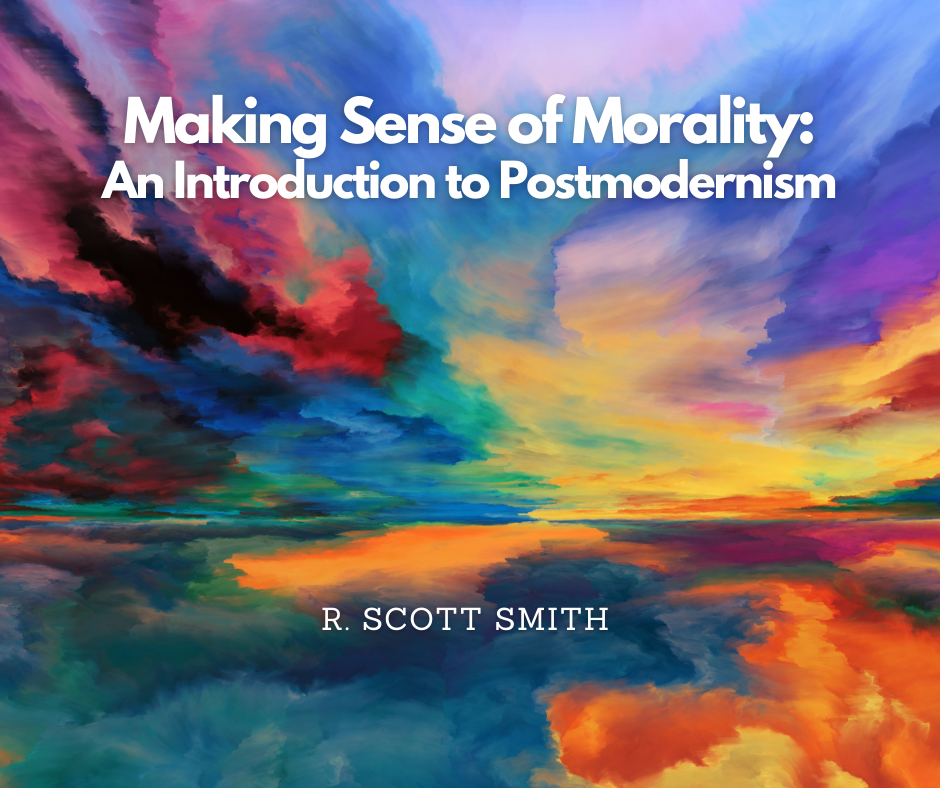Making Sense of Morality: Singer’s Ethics
/Editor’s note: R. Scott Smith has graciously allowed us to republish his series, “Making Sense of Morality.” You can find the original post here.
Introduction
Now I will give a brief, selected overview of Peter Singer’s ethics. He is one of the most influential ethicists today, and he takes seriously the implications of naturalism and utilitarianism. He has written extensively on animal rights, the right to life of fetuses and infants, and much more.
Singer’s Views
For Singer (b. 1946), the evolutionary, naturalistic story is a given. Therefore, the belief that humans have intrinsic moral worth is from Christianity and thus is not universally applicable or even true. He also distinguishes between humans and persons. Humans and other species do not have essences, and mere species membership does not seem morally significant. So, Singer decries the Christian, essentialist view as giving an unjustifiable preference to humans, making it speciesist.
Instead, Singer adopts functional criteria for personhood, such as having (1) the capacity to see oneself as a continuing subject; (2) a desire to keep living; (3) the capability to make choices and act on them (autonomy); (4) self-awareness; and (5) a capacity to experience pleasure and pain (i.e., sentience). Moreover, there are members of other species that are persons, such as apes and dolphins. As persons, they should be subject to greater moral protection than a human fetus or infant, which lacks these traits. Accordingly, abortion and infanticide are permissible.
As a utilitarian, he thinks pleasures should be increased and pains avoided. Still, only actual pleasures and pains should be included in the calculus; we cannot calculate other, possible ones. He also gives weight to a person’s desires, or preferences. If beings prefer to live, they are persons, so it is wrong to kill them. Killing them would thwart their preference and thereby reduce pleasures.
Sentience is crucial since sufferings directly affect the calculus. Further, since suffering extends across species, and there are nonhuman persons, we should give equal moral consideration to any person that suffers. But, if a being cannot experience suffering (i.e., is not sentient), then there is nothing to factor into the calculus. Moreover, Singer believes that when giving such consideration, we should adopt a universal point of view.
Assessment
Singer’s views have been widely influential, and he seems to take the implications of naturalism for ethics quite consistently. After all, if all life has evolved without God, why should humans have greater moral value than other species?
Still, there are various concerns we can surface with his ethics. First, as a utilitarian, Singer’s views do not seem exempt from various concerns we raised about utilitarianism. While he evidently would support murder and rape as wrong, and justice and love as good, still those conclusions would depend upon the calculus. So, these core morals could be overturned. Yet that would undermine several deeply held convictions.
Consider also Singer’s functional definition of personhood and the capacity to see oneself as a continuing subject of one’s life. On naturalism, can there literally be an identical person who continues through time and change? There are no essential properties on naturalism. It seems I am just a bundle of physical properties at any given time. That bundle would be identical to another bundle at a different time only if they have all the same properties. But, physical things always are changing. I am changing continuously; some may be relatively minor, e.g., my hair grows, while others may be more significant, such as my growing into adulthood.
What makes all these bundles of properties me at each of these times? The answer seems to be that there is nothing that can do that. My properties keep changing – even the cells in my body and brain. Without something that remains the same, there is no continuing subject, which is a prerequisite for personhood for Singer. Unfortunately, his view entails that there are no persons, which surely is false. Moreover, without any literal sameness of person through time and change, his other criteria are undermined, too.
Crucially, his ethics depends upon the validity of naturalism. Is it justified? That answer will affect all the naturalistic options we have considered, and any others too. To that question I now turn.
For Further Reading
Peter Singer, Practical Ethics, 3rd ed.
R. Scott Smith, In Search of Moral Knowledge, ch. 6
R. Scott Smith is a Christian philosopher and apologist, with special interests in ethics, knowledge, and seeing the body of Christ live in the fullness of the Spirit and truth.




















